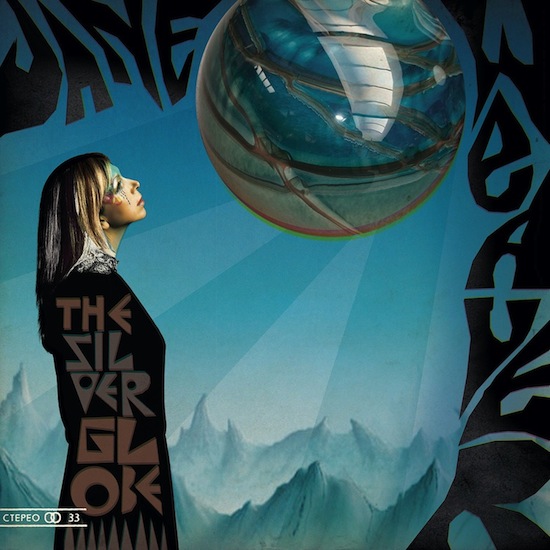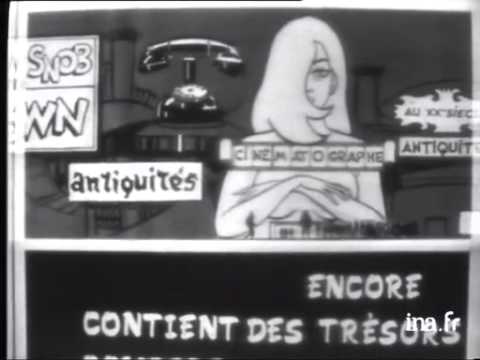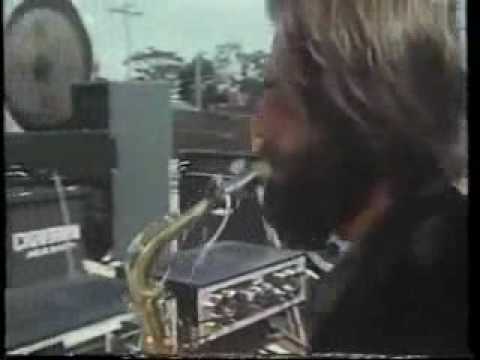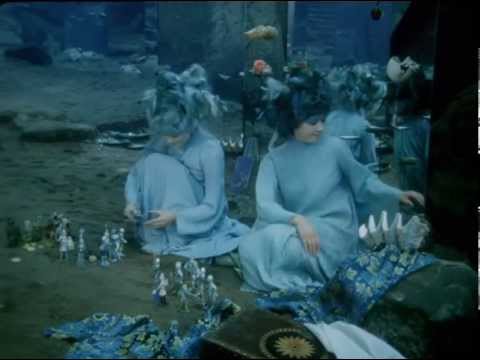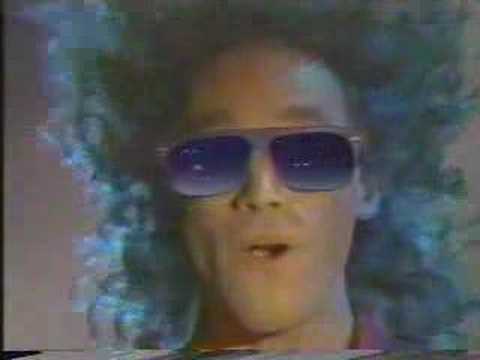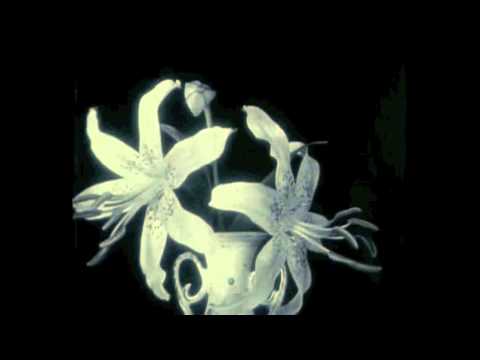This week, Jane Weaver released her excellent, cosmos-gazing sixth solo album, The Silver Globe, out on Finders Keepers Records. In our review, Joe Banks concluded: "Weaver’s strong melodic sensibilities and incisive songwriting powers here alchemise raw genre material and turn it into, well, silver". Ahead of an upcoming interview with Weaver on tQ – following up on the last time we talked to her, in 2010 – she’s given us a track-by-track commentary on the album – have a read and listen above and below:
‘The Silver Globe’
The Silver Globe is basically a red herring. It’s like the yellow brick road to the imaginary emerald palace or the house with the golden windows. The harder you try to get there the stronger you become and the reflective ball begins to shine brightly, but in reality the ball is just a mirror reflecting your own hard work and your development as a human being. Once you come to terms with this life gets easier.
The music industry creates the same illusions in order to sell your own energy back to you. The grass is never greener, it’s actually an entirely different colour altogether, it’s all about how you process your own success and preserve your original motivation, then you create your own system. The intro and interludes are made of distorted and synthesised vocals inspired by the work of Suzanne Ciani and Annette Peacock to create fake humans or trapped souls like the first Poltergeist film or the Mimarobe character in Karl-Birger Blomdahl’s Aniara space opera from 1959.
The title is also a homage to the post-apocalyptic visual elements to a film, On The Silver Globe, by Andrzej Żuławski (based on a book by his great uncle) which was put on hold by the Polish government for ten years. Żuławski had already had two films banned in Poland due to political paranoia, he then fled to the free West only to have his next film, Possession, banned by the BBFC who wrongly considered it a video nasty… four banned feature films but he still kept going because he was a true artist at one with his creativity.
‘Argent’
This track basically sets the electric tone of the album and introduces silver as the life-force; scientifically silver is the highest electrical current of any metal or heat. The track features a lot of synths. An extension of the first track, it vocalises the same sentiments about people’s misguided goals. For this track I imagine trying to battle my way to the globe with a cast of space pirates, swordsmen and lawyers trying to steal the ‘silver’ using technology and smoke and mirrors to hypnotise and confuse me (influenced by Jean-Claude Forest’s Marie Mathématique cartoons).
The track also features a sax solo by Steve Maxwell Von Braund from the original 70s Cybotron, a cosmic synth rock group from Australia (not the Juan Atkins one). Cybotron ran their own independent label in Melbourne called Clear Light Of Jupiter which basically spearheaded a bizarre Australian Krautrock movement importing bands like Ash Ra Tempel and Agitation Free and selling more copies than they did in Germany. I was watching a lot of post-apocalyptic films and Aussie horror films when making the LP and especially liked the weird over-saxed club scene in Mad Max, working with Steve sealed the Aussie connection. I suppose this track is influenced by Aussie-Krautrock if you can imagine such a thing.
‘The Electric Mountain’
This track is very much about my growing up in Widnes between Liverpool and Manchester. I was a product of a chemical environment – my mum worked as a secretary for the ICI chemical plant and my dad worked for the pharmaceutical company that manufactured Prozac. It was a very happy and innocent childhood, and as a fan of sci-fi, the giant power plants of ICI and Stanlow were great for the imagination and looked like massive metal cities from Blade Runner, terrifying but at night beautifully lit…
In my teens I hung around with hippies and bikers who would talk a lot about bands like Hawkwind and Gong. I managed to get a copy of Church Of Hawkwind in the 80s, which, although it came after their golden era period, it still made a big impact. It’s actually my favourite Hawkwind album despite its 1982 cyber-punk credentials – it’s been a big influence, not just for nostalgic reasons; there are some great moments on the album, instead of trying to replicate it, I contacted Dave Brock and sampled a section of ‘Star Cannibal’… probably the closest I’ll ever get to a Hawkwind co-write.
The song itself is also written in a comic book style but is loosely based on our own power resources as human beings and preserving creative energy in a robotic society and not running too far away from our initial spark. The title is based on a huge electric energy plant built in Wales in 1974, which is concealed inside a mountain like a giant David Copperfield illusion. It was made in anticipation of the nuclear revolution, which fortunately never happened so it’s never actually reached its destiny. The name also refers to The Holy Mountain (Jodorowsky’s adaptation of René Daumal’s Mount Analogue), which features both illusions and humankind’s inconclusive metaphysical journeys and the struggle between religion, magic, science and technology.
‘Arrows’
‘Arrows’ combines some of the themes running through my songs, with silver at one end and birds’ feathers at the other; the silver tip kills the bird and the feathers are used to make the next arrow as the circle continues.
The song is a repeat of the same line like a poem or mantra. Artists want to be creatively immortal but you get trapped in a box like sapphire and steel – it’s so important to work and collaborate with other people, the best way to evolve and learn. I worked on this track with David Holmes when I was in L.A. re-scoring a Czech version of The Little Mermaid for Cinefamily. David is a friend and I think we share a lot of the same ideas about cinematic pop music.
‘Don’t Take My Soul’
This track is perhaps the poppiest track on the album. It’s a little bit like the disco scene in the film where the main character goes into some futuristic Japanese roller rink with giant TV screens. I always loved the disco dance scene in the Buck Rogers film and the composer’s bizarre idea of what future pop would sound like. I also sing this in a different range almost playing a different character.
The song itself repeats the same themes about love, religion and secularisation but in a totally dayglo context. I like the idea of old religions being presented via bizarre robotic entities, it’s obvious that a lot of the early developments in science and medicine were originally known as witchcraft, people used to think photography stole a person’s soul… I heard a story that when Rebop Kwaku Baah first joined Can he felt the same about Holger Czukay’s sampling technology. Everyday people use technology to steal people’s music, art and film. Technology doesn’t die – it outlives the moral consciousness and maturity of all mankind.
I originally came up with this melody in the early Twisted Nerve days when myself and Dave Tyack were preparing the Misty Dixon LP – it’s kinda fitting that Damon Gough ended up coming in to do the Godley & Creme-style guitar solo at the end, it’s great that I could collaborate in some way with Damon and Andy Votel together.
‘Cells’
‘Cells’ is almost like a microscopic version of ‘The Electric Mountain’ but with the positive realisation that nature is the real energy force, nobody is immortal… we are just cells. It’s probably the clearest narrative on the LP, almost sung/spoken like a primary schoolteacher. I wanted this track to be like a BBC educational programme with time-lapse photography, like F. Percy Smith. This track also toys with the story of Icarus and what happens if people climb the mountain and get too close to The Silver Globe. It’s like a cautionary folk song for kids using electric tones like Morse code.
The music also features synthetic ocean waves made on the Buchla modular synthesiser by Suzanne Ciani (whose Seven Waves | Voices Of Packaged Souls LP was re-pressed on Bird Records last year), her uncredited electronic music on The Stepford Wives and the Xenon pinball machine are ingrained in my everyday life.
‘Mission Desire’
This is another comic book-style pop track… I suppose it’s about chasing your dreams and destroying the obstacles that get in your way. There’s quite a distinct European soundtrack element here echoing the inimitable music of François de Roubaix or JC Vannier. I tried to use a lot of original analogue instruments and techniques on this album but it gets increasingly difficult to maintain this machinery. As the years go by, it becomes almost impossible to afford to use vintage equipment without big studio budgets which means a lot of the classic 60s and 70s rock sounds are reserved for major label signees or big indie rock groups as opposed to experimental artists. I truly love synthesisers and vintage analogue gear but it’s important to have a balance – as long as the desire is there you can get as much out of a Chinese melodica and Casio keyboard with weak batteries as you can out of a mellotron and a string section.
‘Stealing Gold’
This is basically a love song for all the characters who have helplessly worshipped the globe like addicts and fallen. Those who tried to steal the limelight and got burnt quickly. Like foiled explorers or burnt-out actresses who cling like parasites to kings and queens and eat at the captain’s table. They do not realise that within themselves they carry the end of their own dream so they fall and lose everything. This is probably the most stripped down track on the album with vocals and acoustic guitar, David Holmes-produced sounds and Marxophone keys for that Morricone/Nicolai effect, à la Lucio Fulci’s A Lizard In Woman’s Skin (which is a film about a paranoid schizophrenic Italian woman with nice clothes).
‘If Only We Could Be In Love’
This track refers to the top of the mountain again and a place where the wind stops and time stands still. This marks the realisation in the story that the globe or the peak of the mountain is really just a mirror of our own energy and love. It’s really just a call-to-arms for people to work together as human beings for the correct reasons and the love of the art and to stop destroying each other and the environment.
Perhaps this is the hippy movement on the LP, it’s my first foray into samba, I’m not an expert but I love Gal Costa’s first LP with Caetano Veloso [Domingo], which might have influenced this track, but this has still got a mechanical drum machine (Casio keyboard).
‘Your Time In This Life Is Just Temporary’
This is the last track on the album and returns to organic instruments like piano and drums as opposed to synths, which is probably the direction I will go with on my next LP. The Silver Globe has disappeared and the girl has become human, it was all an illusion… human life and love is the prize.
As a young artist I grew up believing that you had to take certain dictated paths, but you realise it sometimes feels like the electric carousel in Logan’s Run where humans are exterminated at 30 years old… unless you form an underground resistance and find that there is a giant world out there, at which point the central computer self-destructs and society returns to the organic elements and freedom!
Devising your own independent system is a wonderful thing, with so many multi-faceted social elements to enjoy. On my records and via the label I have tried to create a community and a family working with artists ranging from seven years old to 70 years old with as much creative freedom as possible.

